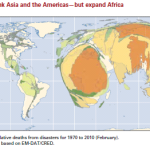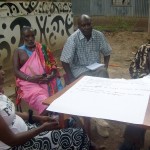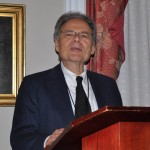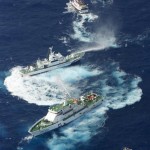
Sins in the name of children
by Nikhil Desai – Energy Security Contributor
Every climatic disaster is an opportunity to demonise fossil fuels and whip up guilt, anxiety, moral pretensions, and political…

Sins in the name of children
by Nikhil Desai – Energy Security Contributor
Every climatic disaster is an opportunity to demonise fossil fuels and whip up guilt, anxiety, moral pretensions, and political…

Another hinge for the Pacific Pivot: Australia’s nuclear navy?
by Richard Tanter – Austral Peace and Security Contributor
One of the hinges in the Pacific pivot is closer alignment of the US and its longterm allies, especially Japan, Korea and…

Hayes and Tanter offer a brief overiew of the benefits of establishing a Nuclear Weapons Free Zone in Northeast Asia. They then evaluate critical elements and issues associated with establishing such a zone, including monitoring and verification, membership, obligations, enforcement and the legal and political issues surrounding both North Korea and Taiwan.
Peter Hayes is the Executive Director of the Nautilus Institute and Richard Tanter is an Associate of the Nautilus Institute.
This report was originally presented at the New Approach to Security in Northeast Asia: Breaking the Gridlock workshop held on October 9th and 10th, 2012 in Washington, DC.

Creating pathways to a sustainable future
by Saleem Janjua – Climate Change Adaptation Contributor
Climate adaptation strategies are essential for guiding the adaptation actions of local governments and for moving forward towards sustainability…

James Goodby writes that the Halperin proposal for a regional security mechanism in Northeast Asia suggests that some sections of the proposed Comprehensive Treaty would be adhered to by some of the signatories while others would be adhered to by all the parties. “For this reason, among others, it is useful to review the categories of security issues that need to be addressed, and by which states…Whether the Comprehensive Treaty is seen as a metaphor or as an actual document, the reality is that a security community in Northeast Asia can only be created through a comprehensive assault on all or most the issues that bedevil inter-state relations in that region of the world. Only a comprehensive approach offers the hope of ultimately eliminating North Korea’s nuclear weapons program.”
James Goodby is a Research Fellow at the Hoover Institution, Stanford University.
This report was originally presented at the New Approach to Security in Northeast Asia: Breaking the Gridlock workshop held on October 9th and 10th, 2012 in Washington, DC.

Reformer Flame: Neutralized Moth. Why did Kim Han-sol do a TV interview?
by Roger Cavazos – DPRK Contributor
While Kim Han-sol’s recent video created a splash, his comments do not alter North Korea’s trajectory in any…

Morton Halperin lays out a new approach to developing and implementing a process of regional security cooperation in North East Asia which will lead to a denuclearlized Korean peninsula. It proceeds from the premise that the prior approach to denuclearization has reached a dead end and that we need a new approach which takes account of where we are now and the fundamental interests of the two sides. Promoting this new process requires that the United States continue to maintain and strengthen its military capability, alliance relations, and the structure of global sanctions against North Korea by the UN Security Council and other means. However, the elements of the comprehensive approach to peace and security in Northeast Asia would also include: termination of state of war, creation of a permanent council on security, mutual declaration of no hostile intent, provisions of assistance for nuclear and other energy, and the establishment of a regional nuclear weapons free zone.
Morton H. Halperin served four US presidents and is currently a Senior Adviser at the Open Society Foundation.
This report was originally presented at the New Approach to Security in Northeast Asia: Breaking the Gridlock workshop held on October 9th and 10th, 2012 in Washington, DC.

Bridges to nowhere – promises, promises
by Nikhil Desai – Energy Security Contributor
Some thought the moment to save the earth had passed in Copenhagen nearly three years ago. Phew!! What a relief!!!…

South Korea Joins The Big Boy League
by Peter Hayes – Deterrence Contributor
If we try to figure out what the post-2010 ROK “pro-active deterrence” concept articulated and pushed hard by former Blue House national security advisor…

China to the left, Japan to the right, and a silent Korea
by Yi Kiho – Governance and Civil Society Contributor
Candidates for the next president and prime ministerial elections in South Korea and Japan were determined during the past two weeks…